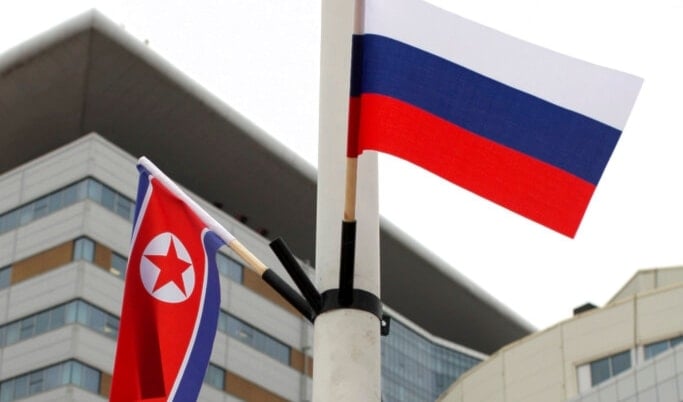Russia ratifies strategic partnership, pledges mutual defense
One key component of the agreement is the joint opposition to Western sanctions, which Moscow and Pyongyang describe as "unilateral coercive measures" that violate international law.
-

Flags of Russia and the DPRK are seen along the road on Russky Island, in Vladivostok, Russia, Tuesday, April 23, 2019. (AP)
Russian President Vladimir Putin has officially ratified a comprehensive strategic partnership agreement with the DPRK, strengthening military and political ties with the heavily sanctioned state amid growing international tensions.
The treaty, initially signed by Putin and DPRK leader Kim Jong-un during Putin's visit to Pyongyang in June, includes mutual pledges of defense and a commitment to oppose Western sanctions.
The Russian State Duma unanimously endorsed the agreement in October, with final approval granted by the Federation Council on November 6.
Putin's signature on November 9 brings the treaty close to full enactment, with ratification set to be exchanged between Moscow and Pyongyang in the coming days.
The agreement outlines that Russia and the DPRK will provide "military and other assistance by all means" if either party faces armed aggression.
This aligns with Article 51 of the UN Charter, whereby the two establish a formal commitment to defend each other against foreign attacks.
The treaty also stipulates that neither nation will sign agreements with third parties that could threaten the other's sovereignty, security, or other critical interests.
Read more: DPRK FM stresses need to strengthen nuclear arsenal, perfect readiness
Opposing sanctions
Another key component of the agreement is the joint opposition to Western sanctions, which Moscow and Pyongyang describe as "unilateral coercive measures" that violate international law.
Both countries have committed not to impose sanctions on each other, noting their shared stance against extraterritorial and unlawful actions by Western states.
DPRK Foreign Minister Choe Son-hui affirmed Pyongyang's support for Russia in its conflict with Ukraine, stating that the DPRK believes in Russia's eventual victory and will stand by Moscow for as long as necessary.
Militarizing Korean Peninsula
For years, the US, South Korea, and Japan have conducted joint military drills on and around the Korean Peninsula, a strategy they claim is aimed at reinforcing regional defense but one that has also provoked sharp reactions from the DPRK.
The DPRK has constantly affirmed that it views these exercises as direct threats, often responding with escalatory measures, including missile tests and military demonstrations, which it deems necessary for its defense.
Read more: Possible new axis emerging against Western hegemony: CNN
Lately, the DPRK's strategic partnership with Russia has sparked allegations that North Korean troops are participating in efforts to support Russia in its special military operation against Ukraine.
The Russian Foreign Ministry responded to these claims, asserting that cooperation between Russia and DPRK is in line with international law and not directed against South Korea's security interests.
"Cooperation between the Russian Federation and North Korea is carried out within the framework of international law and is not directed against the security interests of the Republic of Korea," a spokesperson of the Russian Foreign Ministry said.
In June, South Korea decided to consider the possibility of arming Ukraine following the signing of the Russian-DPRK defense treaty.

 3 Min Read
3 Min Read








